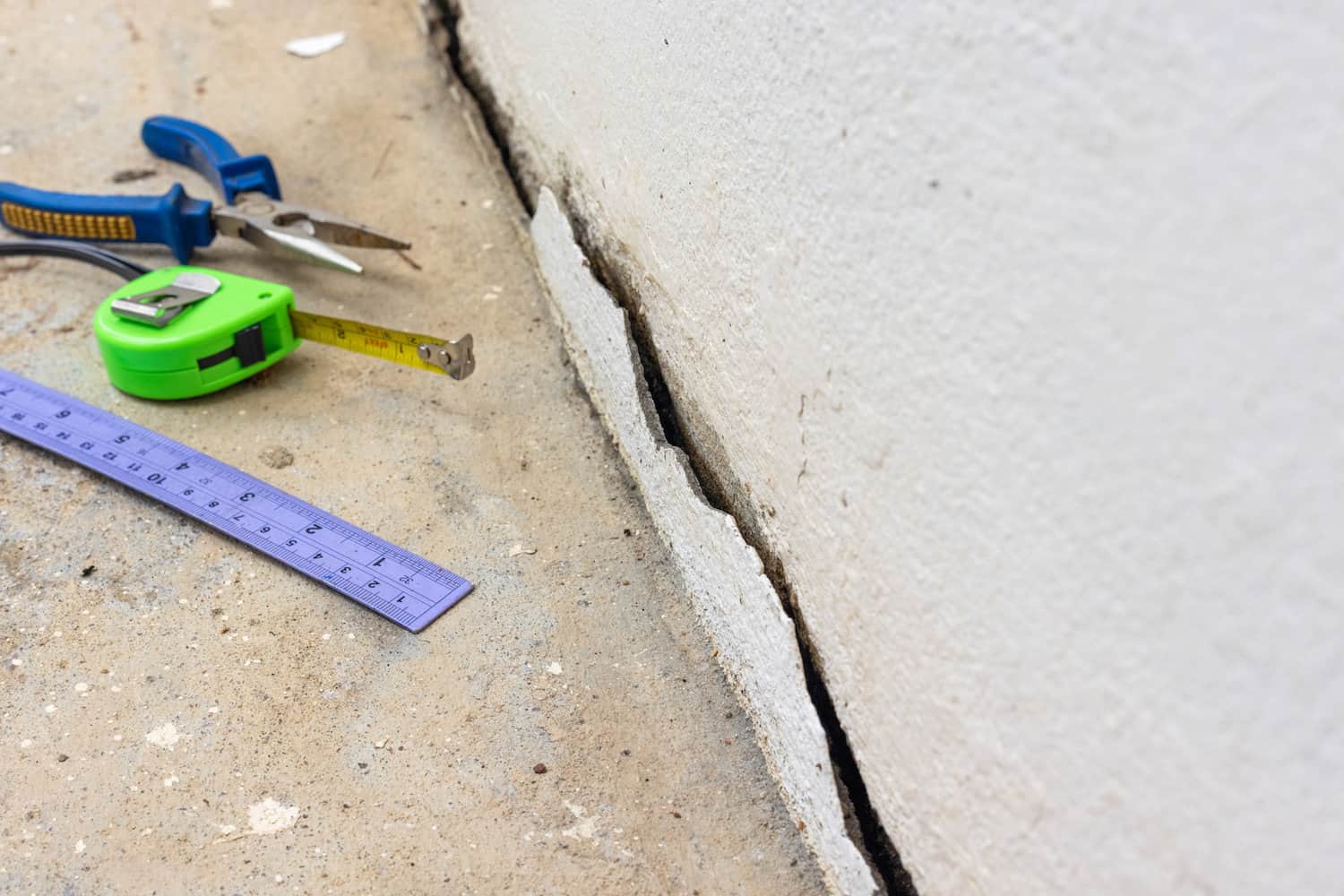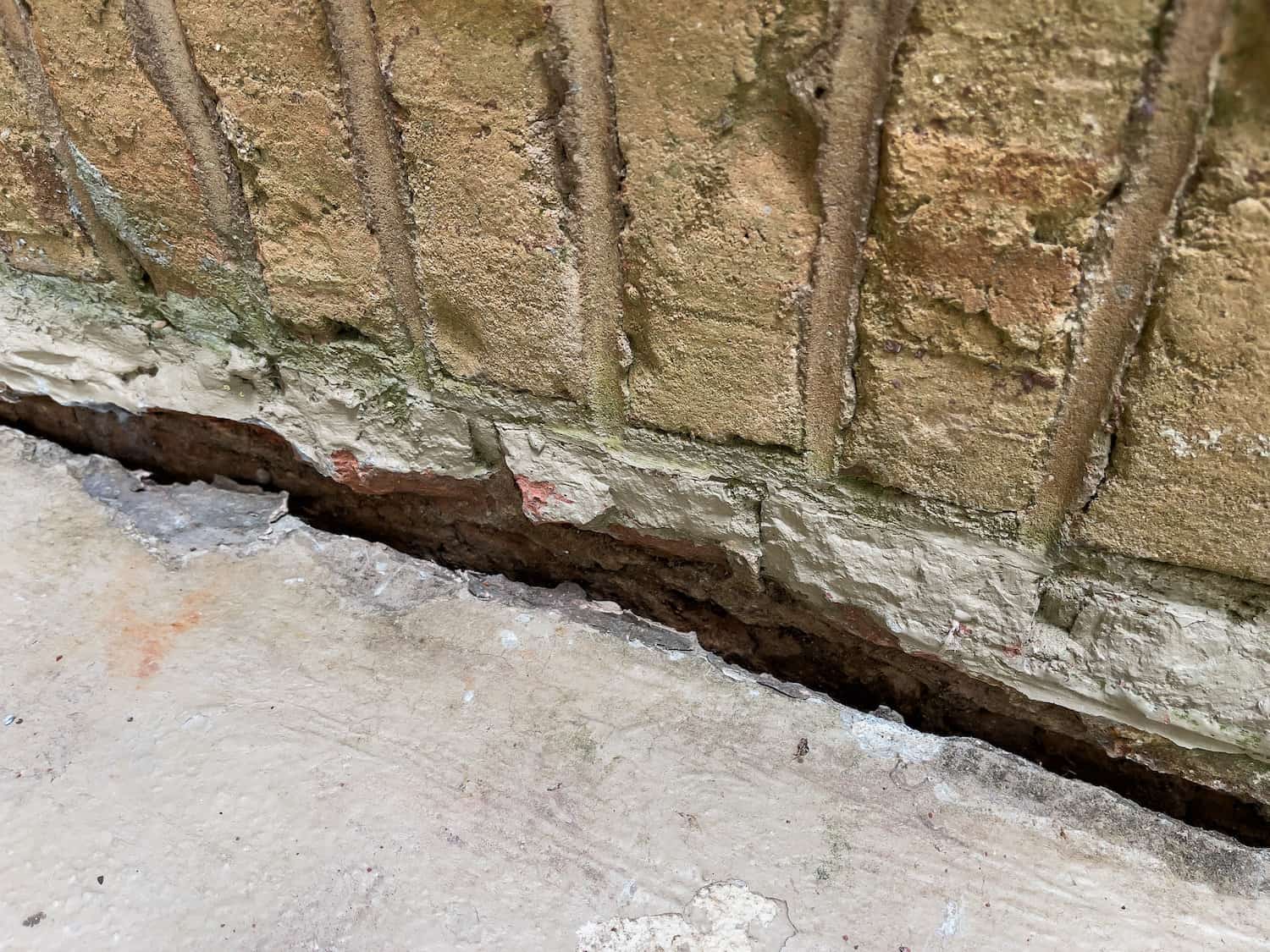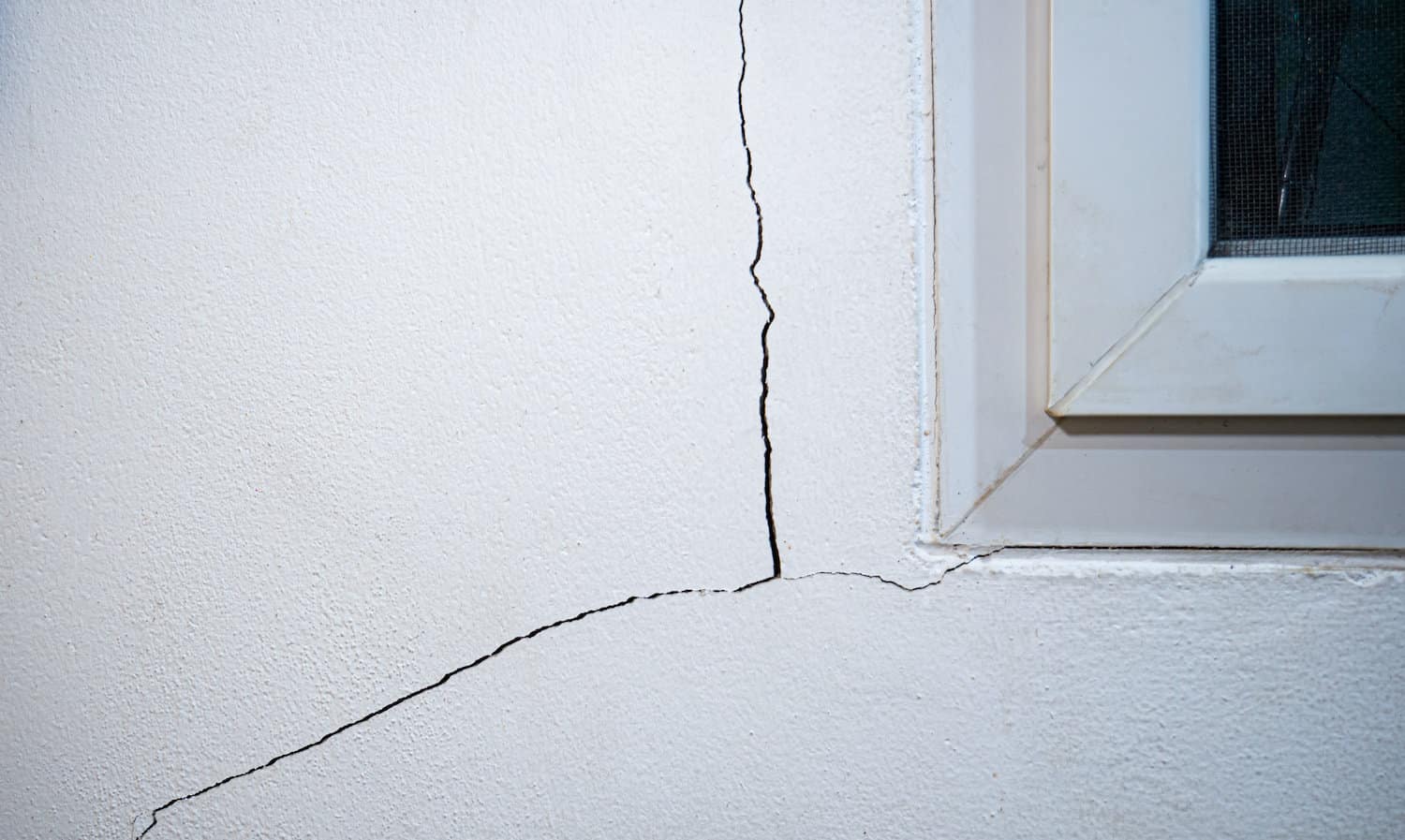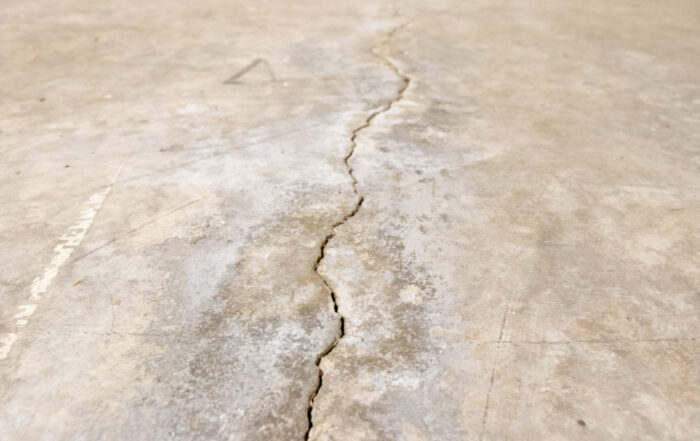8 Signs Your Home Is Settling (And What Causes Homes To Settle

It’s a known fact that houses settle. In fact, every house or new building construction is going to settle a little bit. This is just due to the weight of your home and gravity shifting in the soil beneath the foundation: this is normal.
While some settling is appropriate, your home can also settle too much— leading to issues with your foundation. Minor things like;
- An uneven spot on the floor;
- minor cracks in concrete or tile;
- or slight noises like creaks or cracks;
are not any cause for alarm. In the first few months of your home being built, these may be common signs your house is still settling. However, if they extend beyond the first few years or happen in a home decades old, it can be a sign of a problem. Our guide will go deeper into house settling and how long it should take, plus what symptoms are not related to settling.
Why Does a Home Settle? 🏡
The main reason your home settles is because of the soil below. After construction, the weight of your home can cause the ground beneath it to shift or compress. More specifically, a few factors can play into how and why your home settles after construction.

Soil Conditions and Stability
The type of soil your home is built on has a lot to do with how long settling will last. Clay and other heavy soils are going to offer more resistance than loose, sandy soils. That being said, the level or composition of the soil below can also be a factor in settlement. If there’s too much sand or clay soil underneath, it won’t be able to hold the weight of your home, leading to faster or more pronounced settling.
The Material Your Home is Built With
The weight of your home is another factor that comes into play. It helps to understand what materials your home was built with and how much it weighs in total. Heavier materials like brick, concrete, or steel will take longer to settle than lighter materials made of wood.
The Foundation Materials
The materials used in your foundation can affect how much and how quickly it settles. Concrete foundations are generally more resistant to settling than other materials, such as wood or steel beams.
Seismic Activity
In some areas, seismic activity, such as earthquakes and tremors, can cause a home to settle faster or more frequently. This is because the sudden shifting of the ground beneath your foundation can cause it to compress or even buckle in some cases.
Local Weather and Climate
In areas with extreme or sudden changes in weather, such as very cold winters, settling can be more pronounced. This is because the freezing temperatures can cause water to expand in the soil beneath your home, leading to movement and eventual settling.
Seasonal Changes
Finally, seasonal changes can also play a role in how much and how fast your home settles. As the seasons change, so does the amount of water in the soil beneath your foundation. Too much or too little water can cause instability, leading to shifts and settling. So be very mindful during the rainy season to watch for pooling water around your home.
When your home is first built, it will take a few months for it to settle into its permanent foundation and form. This settling time can vary greatly based on the type of soil or land beneath the home. Over time, all of these factors can affect your foundation and should be monitored closely with regular foundation inspections and maintenance.
If your home has been around for decades and you are now noticing signs of settlement, this could indicate the house’s foundation may be shifting, which requires professional help.
3 Signs Your Home is Settling and 5 Red Flags 🚩
Some of the most frequent changes caused by settling are:
- Hairline cracks in walls close to the ceiling
- Small foundational cracks
- Air gaps where cool air can escape in summer or warm air in winter
You or the foundation builder can fix hairline cracks with a little bit of patching up. To keep pests and water out, fill small foundational cracks. Air gaps require more attention—use spray foam or sealer to plug them up. Although these seem like big problems, they’re actually quite normal when a house settles and are an easy fix.
While these are normal, too much settlement is a bad thing. There are many warning signs of excessive settling that may indicate a bigger problem with your foundation:

1) Cracks in Drywall
If you have large cracks in drywall that aren’t caused by normal settling, this could be an indication of a bigger problem. These kinds of cracks can occur if the foundation is shifting and can worsen with time.
2) Doors and Windows Becoming Misaligned
If your doors and windows seem to be misaligning, they might be difficult to open or close, or you may notice the door or window frames pulling away from the walls. This could mean that the foundation is beginning to settle unevenly or there’s been a shift in the soil around the foundation.
3) Large Cracks in Concrete Slab, Basement Floors, Etc.
Large cracks in concrete slabs, basement floors might happen if your home has been around for a long time and major foundational shifts have happened. Pay close attention to any sudden signs of large foundational cracks.
4) Gaps Between the Ceiling and Walls
A gap between the ceiling and walls can look like peeling paint or water damage or just a big air gap between where the wall meets the ceiling. While this could be an issue with your attic or the drywall, it can also be a tell-tale sign of a large foundational shift that needs immediate attention.
5) Uneven or Sloped Floorboards
If you notice that spills on the floor or rolling chairs or toys immediately roll to one side or corner of the room, this can indicate a major shift in your floors. It’s probably worth getting a foundation inspection.
If you have noticed any of these signs, it is important to contact a professional right away in order to properly assess the situation and help prevent serious damage.
Calling the Foundation Pros For Help ☎️
Your home’s foundation is the most vital component in keeping your home sturdy and free from major problems. If you notice any signs of your home settling months or years after it was built, it is important to call a professional foundation inspector like Perma Pier right away. We will be able to assess the damage and provide the best foundation repair solutions.



